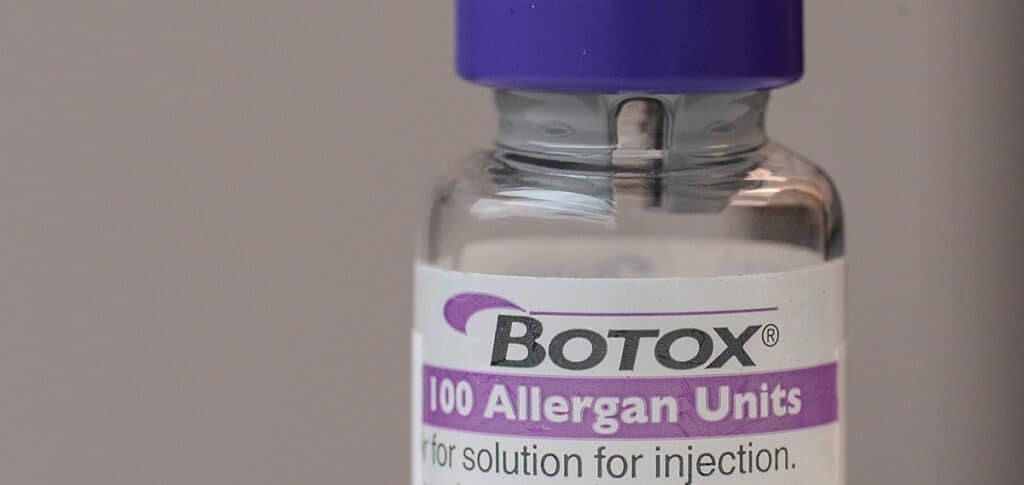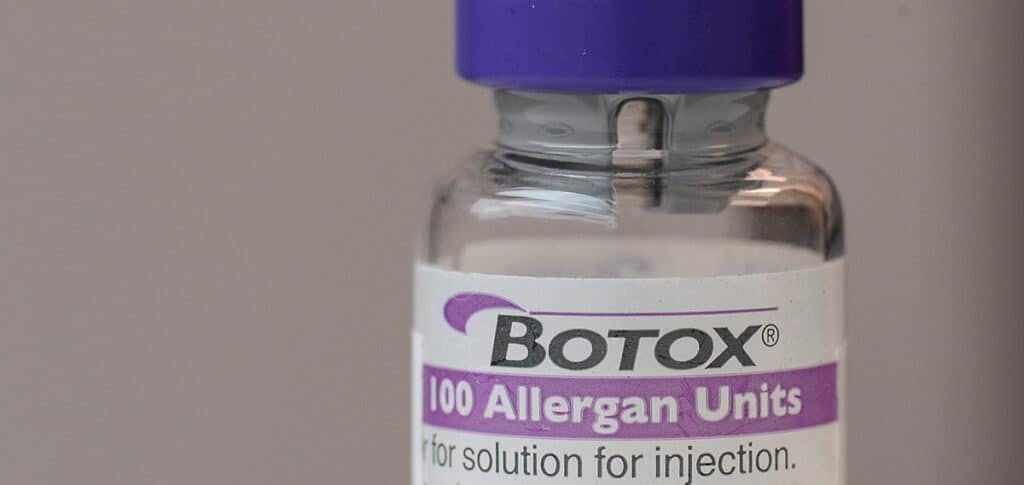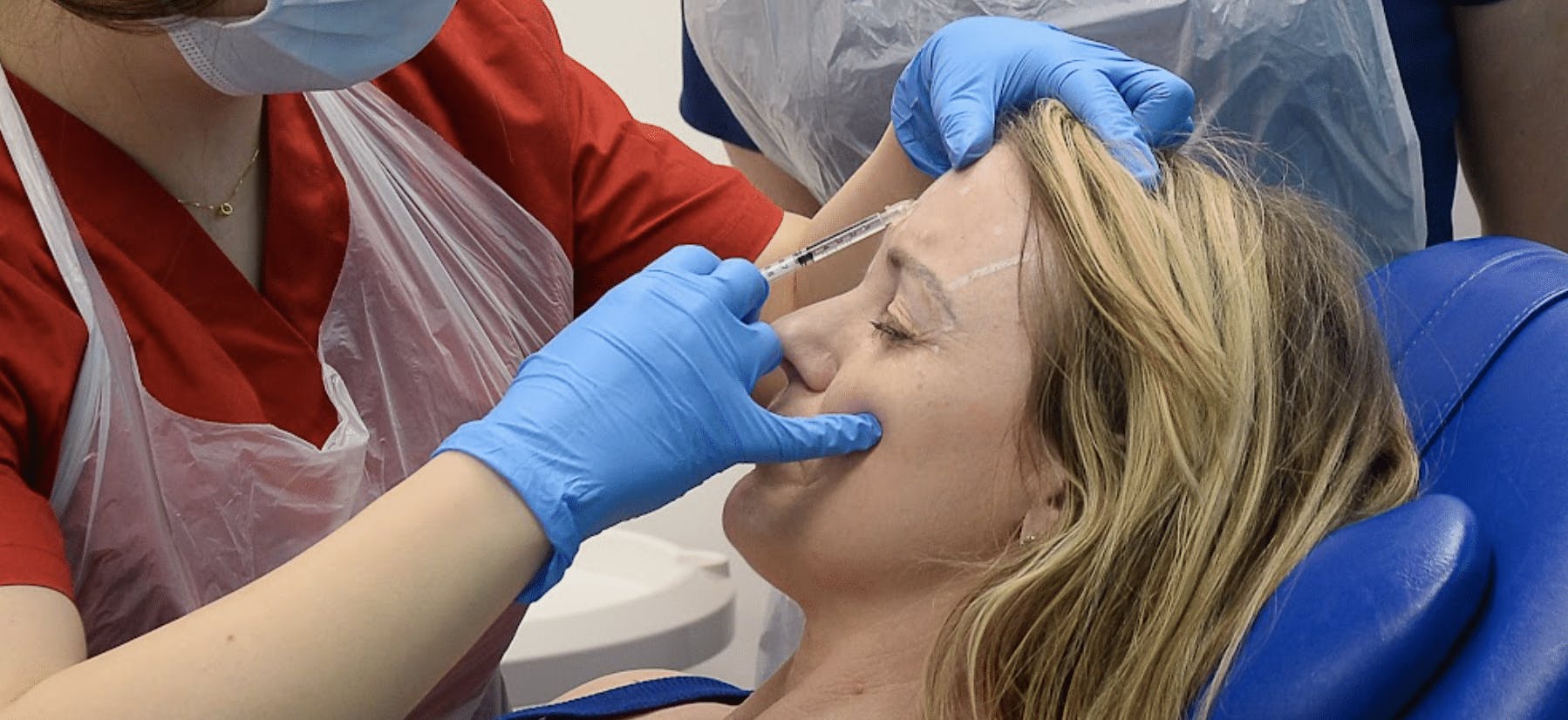Botox Adverse Events Report

New research has caught the media’s attention after it claimed that facial botox adverse events affect one in every six patients. However, the data may well be skewed due to the inclusion of bruising.
These findings were part of a study conducted by a team of plastic surgeons and academic researchers from London’s Royal Free and St Thomas’ hospitals. It involved analysing reports of adverse events following cosmetic botulinum toxin (BoNT-A) treatments submitted to the Medicines and Healthcare Regulatory Authority (MHRA).
This is the first time the MHRA has allowed this section of its database of complications to be studied.

Side effects versus adverse events
Before we go any further, it’s important to point out the appropriate terminology here. Media reports refer to the study data as “botox side effects”; this is simply because the phrase is more widely understood by its readers.
The correct medical terminology – as we’re sure you already know – is “adverse events” or “adverse reactions”. This is the language used in the study.
The difference between a side effect and an adverse event is nicely explained by the Pharmacy Times, which states:
“Adverse events are unintended pharmacologic effects that occur when a medication is administered correctly, while a side effect is a secondary unwanted effect that occurs due to drug therapy.”
Data taken from 1991 to 2000
By utilising the Freedom of Information Act, the research team was able to obtain reports submitted to the MHRA. These pertained specifically to reports received between 1991 and 2000 connected to facial cosmetic botulinum toxin treatment.
Their aim was to “assess whether the incidence of reported adverse events in this government registry is comparable to retrospective and prospective studies.”
There were 188 botox adverse events reported to the MHRA during the timeframe. The team’s literature searches found 30 studies and a total of 17,352 injection sessions. Their analysis of the data revealed a complication rate of 16 per cent.
According to The Observer, “The adverse reaction reports submitted to the MHRA between 1991 and 2000 outlined how the 188 Botox recipients had experienced 481 side effects between them, which indicates that people who suffer complications often have several of them.”
Potentially skewed statistics
The most common botox adverse events reported were minor, known complications such as bruising and headaches.
Facial paresis was seen to have a two per cent risk factor, whilst serious complications were found to be more rare. These included high blood pressure and heart attacks.
By way of example, they quote the study findings: of the 53 out of 188 people affected by adverse events following botox, 28 per cent experienced flu-like symptoms or a chill. And 27 per cent reported having a headache or migraine.
These patients’ medical histories were not provided, nor were the details of their injectors.
Interestingly, including bruising may be skewing the statistics, here and its inclusion as an “adverse event” is controversial. It’s widely understood that bruising should not be reported to the MHRA as an adverse event following injectables. The reason for this is that bruising is not drug-related. It is related to the procedure and use of the needle. MHRA Yellow Card reporting is for drug-related outcomes, therefore the choice to include bruising data in this study is unusual.
Furthermore, this data was taken from 1991 to 2000 – so is up to 30 years old. Techniques and education surrounding aesthetic medicine have vastly improved since these reports were made. There is still the problem of unqualified injectors practising in the UK, however. This is likely to be a source of many issues arising from injectable treatments

Botox adverse events, under-reported
Speaking exclusively to The Observer newspaper, study author Dr David Zargaran explained: “I was surprised to find such a low number of incidents reported to the MHRA. It was surprising as it equates to less than 10 adverse events a year across the UK. I believe the MHRA database of complications is a significant underestimate of the total number of complications.”
The Observer advises 900,000 cosmetic botulinum toxin treatments are carried out in the UK every year. The number of MHRA reports is extremely low when looking comparatively.
The London study concludes, “The number of adverse events recorded by the MHRA likely is far below numbers of adverse events reported in literature. National healthcare regulatory agencies may underestimate the adverse events of aesthetic BoNT-A treatment and therefore legislative changes may be required to ensure more robust reporting.”
Zargaran also added in his comments to The Observer, “ The MHRA encourages reporting of side-effects to authorised botulinum toxin products via the Yellow Card scheme. These products can have rare but serious side effects and should only be administered by physicians with appropriate experience.”
Patient safety issue
What is important to note here is, however, the need to identify where the under-reporting issue stems from. Perhaps, as Dr Zargaran alludes to, it’s exploring who the injectors are for people experiencing botox adverse events? What are their qualifications?
Dr Tristan Mehta, founder and executive director of Harley Academy, co-founder of STORY clinics and Comma – the medical aesthetics global networking platform – is a leader in patient safety. He developed the industry-leading aesthetic medicine qualification, the Level 7 Diploma in Botox and Dermal Fillers, due to the lack of comprehensive aesthetics training available. It is now the UK’s gold-standard qualification in aesthetics – the equivalent of taking a Master’s degree in aesthetic medicine.
He advises, “Lay injectors – those who are not healthcare professionals – are less likely to understand the importance of, or how to go about reporting complications to the MHRA. Education surrounding the Yellow Card reporting scheme is crucial, here.
Healthcare professionals such as doctors, dentists and nurses, are held accountable by governing bodies, whilst non-medic injectors have no such accountability. There is often little training given and anecdotal evidence suggests that what is provided may be sub-standard so is unlikely to cover this important aspect of patient safety.
Our patient’s best interests, starting with their safety, should always be the core of any injector’s practice. This is the key tenet at the heart of all Harley Academy training courses. We seek to achieve aesthetic excellence through extensive training in anatomy, products and ethics as well as essential medical aesthetics techniques.”
Only licensed doctors, dentists, nurses and midwives are accepted onto our flagship Level 7 course which offers hands-on learning in all aspects of aesthetics. From in-depth anatomy, product knowledge and ethics – as Dr Tristan points out – to our unparalleled one-to-one mentored injecting sessions. Obtaining a Level 7 Diploma is the most effective way to receive the quality and breadth of education you need to start your career in aesthetics, with on-going support from experienced specialists.
To find out more about whether the Level 7 Diploma is right for you, book a call with our head of student recruitment, Deneal Basi. He’ll be happy to talk you through your options for becoming Harley Trained!
All information correct at the time of publication
Download our full prospectus
Browse all our injectables, dermal fillers and cosmetic dermatology courses in one document
By submitting this form, you agree to receive marketing about our products, events, promotions and exclusive content. Consent is not a condition of purchase, and no purchase is necessary. Message frequency varies. View our Privacy Policy and Terms & Conditions
Attend our FREE open evening
If you're not sure which course is right for you, let us help
Join us online or in-person at our free open evening to learn more
Our Partners













STAY INFORMED
Sign up to receive industry news, careers advice, special offers and information on Harley Academy courses and services

